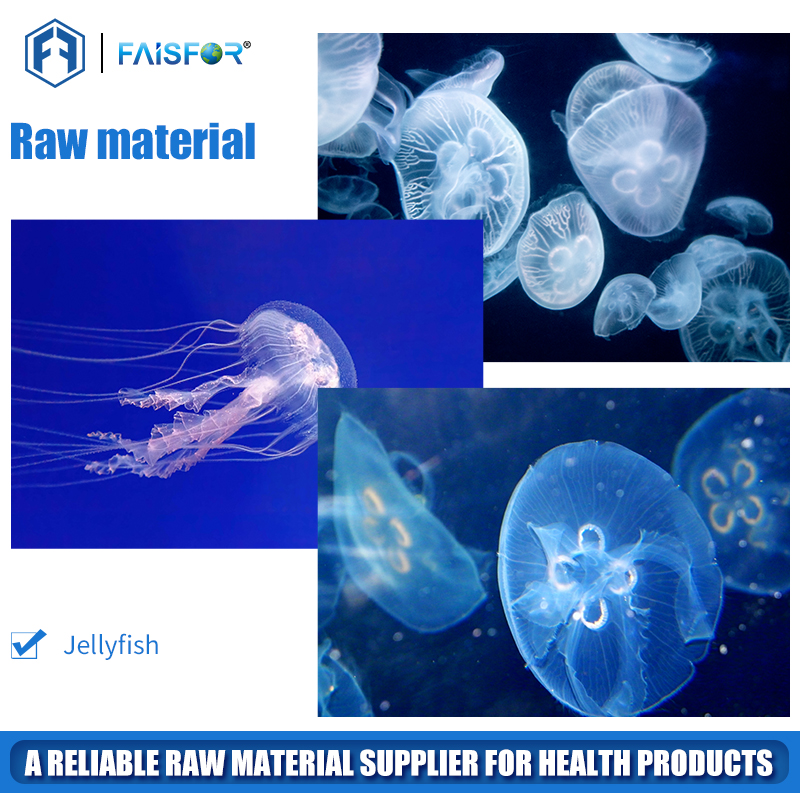At present, the commercialized collagens on the market are basically of animal origin. Common ones are bovine collagen, porcine collagen, fish collagen, and poultry collagen. Different sources of collagen have different types and different application directions. There are currently 28 different types of collagen that play a key role in human health. These proteins are distributed in the body’s connective tissues, including cartilage, tendons, and ligaments, and are important components of bone, skin, and the tissue scaffold (extracellular matrix) throughout the body, including the brain.
New research has discovered a unique source of collagen, which is collagen derived from jellyfish.
Jellyfish are a popular food in Asia, not all jellyfish contain protein, only certain species of jellyfish contain collagen. Jellyfish collagen is derived from edible wild cannonball jellyfish (Stomolophus meleagris) and barrel jellyfish (Rhizostomapulmo), which are rich in amino acids, calcium-binding proteins, antioxidants and macronutrients.
Learn about the advantages of jellyfish collagen in the following areas
(1) Sustainable supply of raw materials
These two special jellyfish species appear twice a year on the North American coast, where fish farms use mesh equipment to catch, clean and freeze, which allows for a stable supply of packaging materials without biological cruelty, in line with current animal-friendly environmental protection trend.
(2) It is richer in amino acids
In the original study, jellyfish collagen was a rich source of collagen types I, II, and V, supporting a variety of tissues in the body. Compared to other sources of collagen, consuming wild jellyfish collagen contains 20 essential and non-essential amino acids, including glutamic acid, glycine, tryptophan and tyrosine, which constitute neurotransmitters that affect thinking, learning and memory . At the same time, these amino acids are also precursors of serotonin, GABA, dopamine and norepinephrine. Among them, tryptophan is an amino acid that cannot be naturally produced by the human body, but is an important amino acid present in jellyfish collagen. Jellyfish collagen also contains calcium-binding proteins, neuroprotective antioxidants, and other nutrients not currently found in other types of collagen, including sodium, potassium, phosphorus, chloride, copper, calcium, magnesium, manganese, sulfur, Zinc, iron and silicon, etc.
(3) Wide range of uses
Jellyfish collagen is a raw material in powder form that can be used in nutritional supplements and functional products in capsules, tablets and gummies. In addition, it can be used in beverage formulations such as cosmetics, skin care, milkshakes and smoothies


